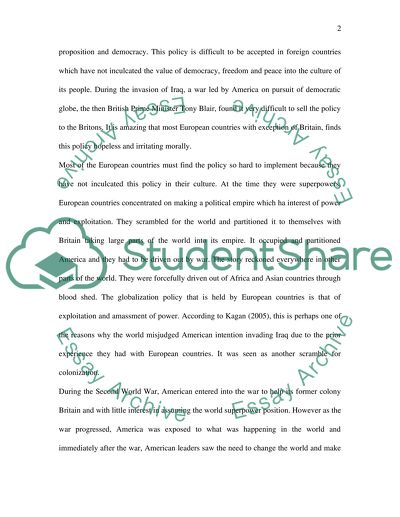Cite this document
(“US foreign policy: democratic realism and war Essay”, n.d.)
Retrieved de https://studentshare.org/politics/1512128-us-foreign-policy-democratic-realism-and-war
Retrieved de https://studentshare.org/politics/1512128-us-foreign-policy-democratic-realism-and-war
(US Foreign Policy: Democratic Realism and War Essay)
https://studentshare.org/politics/1512128-us-foreign-policy-democratic-realism-and-war.
https://studentshare.org/politics/1512128-us-foreign-policy-democratic-realism-and-war.
“US Foreign Policy: Democratic Realism and War Essay”, n.d. https://studentshare.org/politics/1512128-us-foreign-policy-democratic-realism-and-war.


